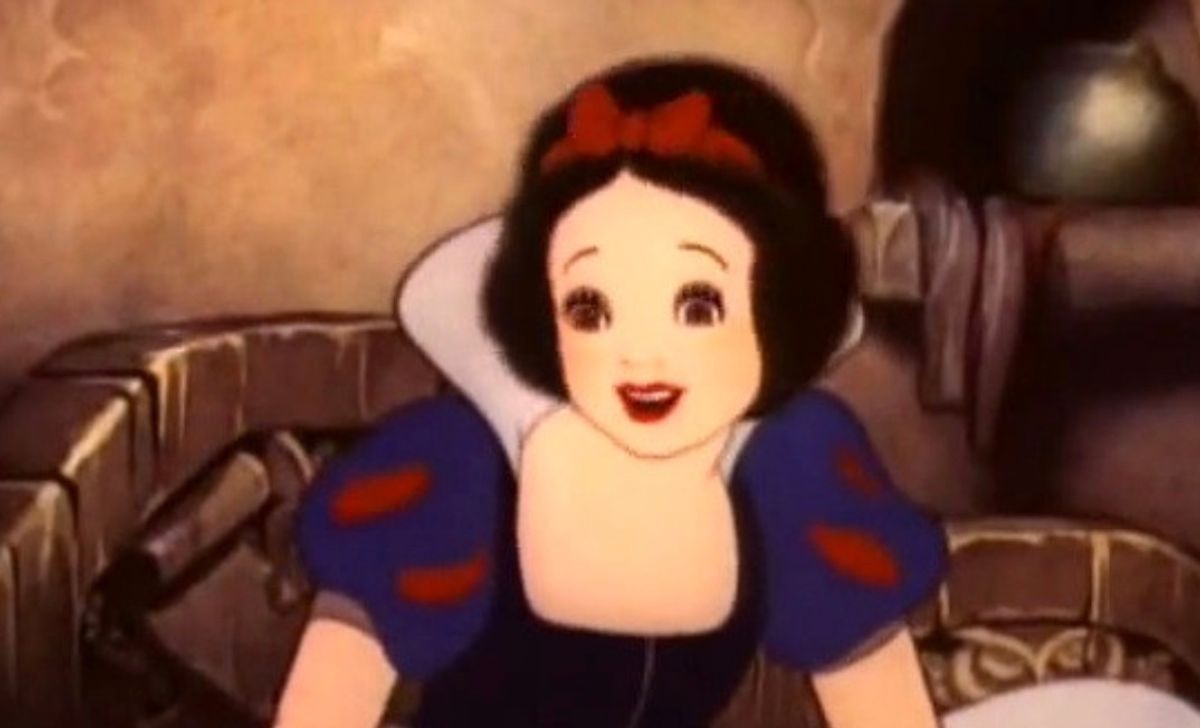Although two travel writers for the San Francisco Chronicle's online publication SFGate criticized the fact that the kiss was included in a revamped Snow White ride at Disneyland, we found no evidence of a serious effort underway to "cancel" the classic animated film.
On May 1, 2021, SFGate, a digital publication run by the San Francisco Chronicle, published a brief, mostly positive review of Disneyland's revamped Snow White attraction.
Now called Snow White's Enchanted Wish, the ride replaced Snow White's Scary Adventures in Fantasyland when the park reopened at the end of April 2021. SFGate writers Julie Tremaine and Katie Dowd wrote, for the most part, in glowing terms about the reopened ride.
But they were also critical of the fact that, true to the original 1937 Disney cartoon "Snow White and the Seven Dwarfs," the revamped ride features a kiss from the story's prince at the end while Snow White is in a cursed slumber. The kiss, according to the Disney version of the story, is what wakes Snow White and enables the fairy tale ending. Tremaine and Dowd wrote:
Haven't we already agreed that consent in early Disney movies is a major issue? That teaching kids that kissing, when it hasn't been established if both parties are willing to engage, is not OK? It's hard to understand why the Disneyland of 2021 would choose to add a scene with such old fashioned ideas of what a man is allowed to do to a woman, especially given the company's current emphasis on removing problematic scenes from rides like Jungle Cruise and Splash Mountain. Why not re-imagine an ending in keeping with the spirit of the movie and Snow White's place in the Disney canon, but that avoids this problem?
Still, with the twinkling lights all around and the gorgeous special effects, that final scene is beautifully executed — as long as you're watching it as a fairy tale, not a life lesson.
This paragraph was like Christmas come early to the internet outrage machine. It spurred a flush of news coverage and commentary that cancel culture was coming for Snow White.
"New scene from Disneyland's Snow White ride is prompting backlash," reported Fox News. "Disneyland's Snow White ride attacked for 'kiss without her consent,'" said a New York Post headline. The flurry of stories prompted Disney Imagineer Jim Shull to address it on Twitter in a post that contained a screenshot from Fox's coverage:
We haven't seen any evidence of a genuine wave of outrage or backlash over the ride or Snow White in general pushing for Disney to "cancel" the film or even alter the ride. We did find examples of backlash and reaction against the alleged backlash.
The idea that Snow White is being "canceled" doesn't appear to be a credible one. Instead, it appears to be something of a media manifestation that, as of this writing, has little basis in reality.
The Snow White story is one example among a wave of recent media stories claiming that "cancel culture" is somehow coming for various cultural fixtures that have features that haven't aged well. Oftentimes the stories are over-the-top reports that exaggerate events in order to maximize sensationalism or partisan outrage.
But the idea that a fairy tale may evolve over time to suit the changing sensibilities of contemporary audiences isn't new. Writing for the British publication The Telegraph, journalist Alex Diggins pointed out that Snow White, and other tales that became classic Disney movies, have been altered more than once because their original, gritty elements were not fit for mass consumption.
Snow White is an old story that was included by the Brothers Grimm in their "Household Tales" folklore collection. The story's origins go back centuries. Early versions contain all manner of malfeasance: rape, attempted murder, cannibalism, death by torture, etc.
Diggins wrote that even audiences during the Grimms' lifetime (late 1700s to mid-1800s) found these fairy tales to be unpalatable.
"The Brothers Grimm revised the stories throughout their lives, issuing 17 subsequent versions of their Tales," Diggins wrote. "Each edition abraded away more and more of their gritty specificity: place names were scrubbed, the sexual violence was dialed down and child-friendly illustrations repackaged them for younger readers."

